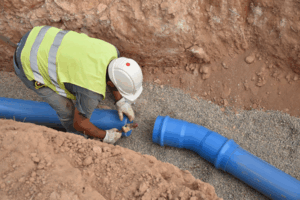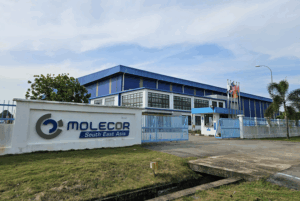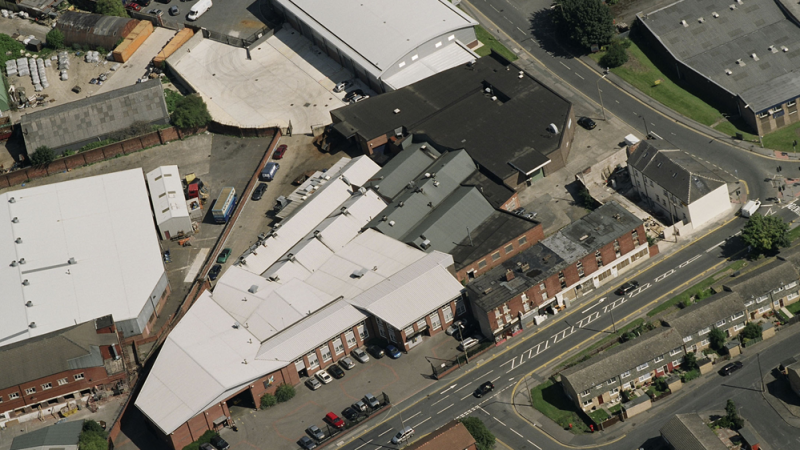Water is the world’s most important resource. It is not only an essential component for existence on Earth, but also plays a vital role in ensuring economic wellbeing and quality of life for all human society.
In a modern world facing a wide range of challenges, from climate change to urbanisation, sustainable management and conservation of water is more important than ever. Molecor Southeast Asia (SEA) is not only aware of these issues, but actively working to tackle them.
Part of the larger Molecor Group, Molecor SEA was launched in 2013. The company specialises in innovative water infrastructure solutions – in particular, the manufacture and distribution of high-quality PVC-O pipes and fittings across Southeast Asia. These sustainable products go on to have a significant positive impact – for both clients and the environment – across the water, sanitation, and irrigation sectors.
“Our business is not just about pipes; it’s about providing access to safe and reliable water systems that can withstand future challenges,” declares Molecor SEA CEO Walter Pattynama. “We have a global mission: to improve quality of life for people everywhere by bringing affordable water within their reach, through innovative, efficient and sustainable solutions.”
New Technologies
To achieve its mission, Molecor has always turned to the latest technological advancements. The company is a firm believer in the ability of new technologies to support environmental sustainability, and this is evident in its core product – TOM® PVC-O pipes.
“Our PVC-O pipes use our patented molecular orientation technology,” Walter explains. “In short, we reorient the molecules of PVC, positioning them in layers. If you broke our pipes apart, you would see lots of these very thin layers, like the pages of a telephone book.
“Just like a telephone book, which is almost impossible to tear apart, our PVC-O pipes are significantly stronger and more durable than standard alternatives. This makes them more sustainable, as does the fact that we manufacture PVC-O pipes with 50% less plastic than traditional pipes, leading to a lighter, more carbon-friendly product.”

On a practical front, Molecor’s innovative pipes are also easier to install than traditional alternatives. The PVC-O product benefits from a push-fit connection, so there is no welding or gluing required. Better still, a bespoke, integrated seal prevents leakage.
“Loose seals, or dirt between the seal and pipe, are two of the main reasons for pipe leakage,” Walter points out. “This is why we work with the Swedish Trelleborg Group, a world leader in engineered polymer solutions with a wide range of applications including aerospace, to develop a high-tech seal that could stop any water escaping our pipes.”
“The seal comprises of a plastic retaining element that holds the seal securely in position in the groove of the pipe socket and a rubber sealing element that ensures a watertight seal once the pipes are jointed. It creates a seamless connection and means that the contractor does not have to play around with loose seals.”
Growing Popularity
Molecor produces its PVC-O pipes for the Southeast Asia market at a facility in Kuantan, on Malaysia’s east coast. From there, the company distributes its products across Malaysia, and to all countries in the region.
“Our Malaysia facility was commissioned in 2015,” Walter reports. “Initially, we were focused on the domestic market, but we now have a much more regional operation. We have recently seen more emphasis on export to countries like the Philippines, Indonesia, Vietnam, and Cambodia.”
The growing popularity of Molecor products across Southeast Asia, and the world at large, can be attributed to a combination of factors. Primarily, water loss during transportation has become an equally troubling problem for both developed and developing nations. Known as non-revenue water (NRW), this water loss is predominantly caused by pipe breakage and leakage – for which Molecor is supplying a lasting solution.
“Water is such a valuable commodity, but across the globe, a huge amount of it is being lost,” Walter remarks. “For a long time, this was getting very little attention because water loss is something you don’t see. Over the last decade, politicians have started to notice, but we still need to do more to educate governments and citizens that we cannot take water for granted – we must be careful with it.”
A Better Future
As Walter suggests, Molecor believes that meaningful efforts to stop water loss begin with education. The company regularly attends and arranges seminars on the topic, raising awareness of how its solutions can help create a better future.

It’s not just water loss affecting the industry though. Ensuring that water is safe and sanitary for drinking is also an increasing challenge, and another area where Molecor can be of service.
“The water industry has traditionally relied on materials like iron, steel, and HDPE, but, as well as leakage, these materials often have corrosion issues that affect the potability of water,” Walter notes. “Our pipes are not only leakage-free, but WRAS-certified. This certification comes from an independent UK body called the Water Regulations Approval Scheme and establishes that drinking water in our pipes is fit for human consumption in environments up to 60°C.”
After just over a decade in Southeast Asia, Molecor has firmly established itself in the region and interest in its groundbreaking products is growing. The company is now looking to expand its footprint in Southeast Asian countries, increasing market penetration in key nations by strengthening its local partnerships with distributors and clients.
Equally, Molecor will remain a vocal advocate for sustainable water management practices, both in how it operates and innovates. The company is already exploring new products and digital solutions that could further optimise efficiency in water distribution networks.
“Molecor continues to develop solutions that bring affordable water to our customers and clients,” Walter confirms. “We are currently looking at manufacturing bigger pipe diameters, from 19 millimetres up to 1.6 metres.
“Our work, however, is not just about creating monetary savings, but also savings on water and savings on the environment. We are a business, but we have a social responsibility. Sustainability will always be at the core of our growth strategy at Molecor, as we work towards a greener future.”





